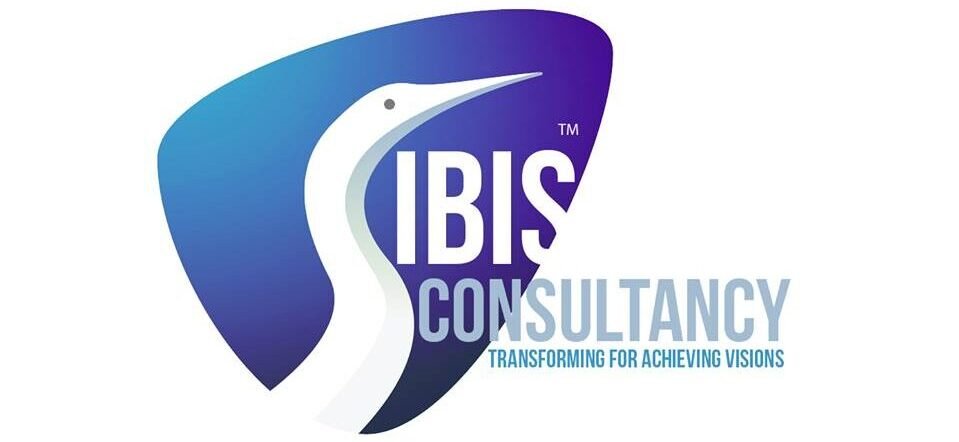Project Control Professional Apprenticeship
- Course Duration: 3 Yearsh
- qualification: Project Control Professional (Level 6)
About this course
Introduction
We have been working with the Market Research Society since this apprenticeship was commissioned to prepare the required learning materials and to support its launch into the industry. We have continued to work closely with them to deliver ongoing improvement in training and make it as relevant as possible to employers and equip Market Research apprentices to become well rounded, knowledgeable and quality professionals.
How it works – The Learning phase
| Apprentices will meet with a tutor monthly to learn the course curriculum. The majority of learning is conducted online allowing learners to meet other apprentices and network |
| Apprentices must take 6 hours a week out of their normal contracted hours to engage in study and learning time |
| Learners must be in the learning stage for a minimum of 12 months and a day. During their time on the learning programme, they will learn key Knowledge, Skills and Behaviours, and build a portfolio of evidence as they go to prove that they have attained the level of capability required |
The Assessment phase
| Once their portfolio is complete, the learner will go to a stage called “Gateway“ which is the start of their assessment period (for this course, that assessment period lasts for 3-4 months) |
| During the first 3 months of the assessment period, the apprentice must carry out a real project at work to apply their learned Knowledge, Skills and Behaviours, then produce and submit a project report and presentation |
| Following their submission and around 2-4 weeks later, the apprentice will meet with an external assessor (usually online), deliver their presentation and discuss their project and portfolio of evidence. |
The training will enable your apprentice to:
Understand research project goals and be able to create a research project design to deliver required insight.
Prepare proposals which recommend suitable research methodologies and analysis to achieve business objectives.
Understand Project Management techniques of time management, scheduling, costs and budgeting
Support research teams in research life cycle including building and maintaining relationships with different service providers
Organise and prepare research materials and data collection documents such as key documents, notes, stimulus materials, questionnaires, discussion topic guides, interviewer briefing notes and incentives
Collate, summarise and evaluate previous research reports, to assess commonalities and new areas of interest
Adhere to appropriate legal and ethical requirements including the Market Research Society Code of Conduct
Capture, check and prepare primary research data using digital and non-digital methods
Undertake desk research into secondary sources of data relevant to research objectives
Check, monitor and screen processes used to recruit and/or maintain databases of participants for use in future research projects
Understand how to improve the design and undertaking of a research project in order to deliver ongoing improvements to processes, customer service and insight
Structure, segment and analyse participant data into appropriate formats in readiness for reporting to clients.
Validate data using accepted research data quality methods to ensure accuracy, representativeness and suitability using statistical and/or social science validation checks.
Prepare research reports and consider the best way to present research outputs to clients so as to detail the findings of the research activity undertaken and give recommendations for future client actions.
We have been working with the Market Research Society since this apprenticeship was commissioned to prepare the required learning materials and to support its launch into the industry. We have continued to work closely with them to deliver ongoing improvement in training and make it as relevant as possible to employers and equip Market Research apprentices to become well rounded, knowledgeable and quality professionals.
Knowledge, Skills and Behaviours
We can provide you with a full list of the Knowledge, Skills and Behaviours which your apprentice will be taught and assessed on but as an overview, your apprentice will learn the following:
Understanding Market Research in Business
Opportunities in Market Research
Market Research Landscape
Types of Market Research
Legal and Ethical Requirements
When to use quantitative & qualitative research
Sampling in market research
Data collection techniques
Data processing and storage
Analysis and visualisation
Communities and software
Designing a study
Critical thinking
Secondary research and analysing past projects
The Stages of a Market Research Project
Design of a Project
Project Execution and Management
Client relationship management
Answering Business Questions with data
Foundations of Analysis
Measures of central tendency and spread
Inferential Analysis
Dealing with precision and bias
Quantitative versus Qualitative analysis
Analysing Secondary data
Interpreting research data to answer questions
Preparing and presenting research findings
What you will learn
Fundamentals of Project Control Professional:
- Understand the principles and methodologies of market research, including qualitative and quantitative research techniques, data collection methods, and the importance of market research in business decision-making.
Research Design and Planning:
- Learn how to design and plan research projects, including defining research objectives, selecting appropriate methodologies, sampling techniques, and developing research proposals and briefs.
Data Collection Techniques:
- Gain proficiency in various data collection methods such as surveys, interviews, focus groups, observations, and digital data collection tools. Learn how to design effective questionnaires and discussion guides.
Data Analysis and Interpretation:
- Develop skills in analyzing and interpreting data using statistical software and analytical tools. Learn how to identify patterns, trends, and insights from data, and how to present findings in a clear and actionable manner.
Report Writing and Presentation:
- Master the art of writing comprehensive research reports and creating engaging presentations. Learn how to communicate research findings effectively to stakeholders, using visual aids and storytelling techniques.
Understanding Consumer Behavior:
- Explore the factors that influence consumer behavior, including psychological, social, and cultural influences. Learn how to apply this knowledge to segment markets and target specific consumer groups.
Market Segmentation and Targeting:
- Learn how to segment markets based on various criteria such as demographics, psychographics, behavior, and geography. Understand how to identify and target key market segments for business growth.
Brand and Product Research:
- Gain insights into brand perception, brand equity, and product development research. Learn how to assess brand health, test new products, and measure customer satisfaction and loyalty.
Digital and Social Media Research:
- Understand the role of digital and social media in market research. Learn how to track online behavior, measure social media engagement, and analyze digital marketing campaigns.
Ethics and Compliance:
- Learn about the ethical considerations and legal requirements in market research, including data protection, confidentiality, and informed consent. Understand the importance of adhering to industry standards and best practices.
Project Management:
- Develop project management skills to oversee market research projects from inception to completion. Learn how to manage timelines, budgets, resources, and teams effectively.
Client Management and Communication:
- Enhance your ability to manage client relationships, understand client needs, and deliver research findings that address client objectives. Learn how to communicate with clients and stakeholders professionally and effectively.
By completing the Market Research Executive Apprenticeship, you will be well-equipped to conduct thorough market research, provide strategic insights, and support business decision-making processes. This apprenticeship will prepare you for a successful career in market research, helping businesses understand their markets and make data-driven decisions.
Benefits of this course
Practical Experience:
- Gain hands-on experience in market research through real-world projects and assignments, allowing you to apply theoretical knowledge in practical settings.
Comprehensive Skill Development:
- Develop a wide range of skills, including research design, data collection, data analysis, report writing, and presentation skills, making you a well-rounded market research professional.
Industry-Relevant Knowledge:
- Learn the latest industry trends, techniques, and tools used in market research, ensuring that your knowledge is up-to-date and relevant to current market needs.
Career Advancement:
- Enhance your career prospects by acquiring specialized skills and knowledge that are highly valued in the market research industry. This apprenticeship can open doors to various roles such as Market Research Executive, Data Analyst, and Consumer Insight Specialist.
Professional Networking:
- Build a network of industry contacts through interactions with peers, instructors, and industry professionals. Networking can provide opportunities for mentorship, collaboration, and career advancement.
Certification and Recognition:
- Earn a recognized qualification that validates your skills and knowledge in market research, making you a more attractive candidate to potential employers.
Client Management Skills:
- Learn how to manage client relationships effectively, understand client needs, and deliver research findings that meet client objectives, enhancing your ability to work in client-facing roles.
Ethical and Legal Understanding:
- Gain a strong understanding of the ethical considerations and legal requirements in market research, ensuring that your work complies with industry standards and regulations.
Enhanced Analytical Skills:
- Develop strong analytical skills by learning how to interpret complex data, identify trends, and generate actionable insights that can drive business decisions.
Versatility:
- The skills and knowledge gained from this apprenticeship are applicable across various industries, giving you the flexibility to work in different sectors such as retail, healthcare, finance, and technology.
Project Management Abilities:
- Improve your project management skills, including planning, budgeting, and resource management, which are essential for managing successful research projects.
Consumer Behavior Insights:
- Understand the factors that influence consumer behavior and how to leverage this knowledge to develop effective marketing strategies and business plans.
Digital Proficiency:
- Learn how to conduct digital and social media research, which is increasingly important in today’s digital-first world, enabling you to track online behavior and measure social media impact.
Boosted Confidence:
- Build confidence in your ability to conduct thorough market research and present findings, enabling you to contribute effectively to your organization and make informed business recommendations.
By completing the Market Research Executive Apprenticeship, you will be well-prepared to embark on a successful career in market research, equipped with the skills, knowledge, and experience needed to excel in the field.

